Find Help
More Items From Ergsy search
-
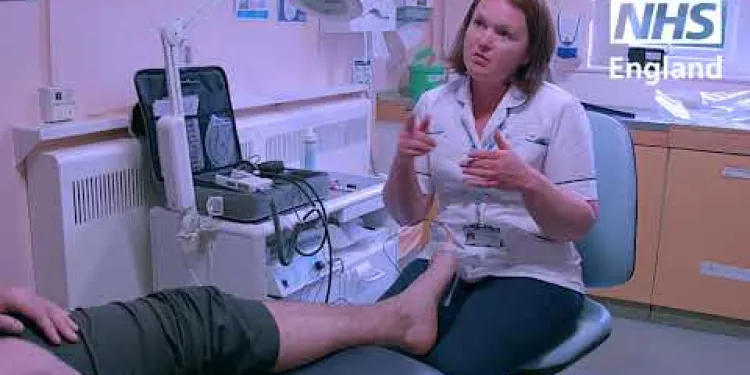
Improving outcomes for people with diabetes
Relevance: 100%
-

NHS Diabetes Prevention Programme; Preventing Type 2 and improving outcomes for people with diabetes
Relevance: 79%
-

How do virtual wards improve patient outcomes?
Relevance: 59%
-

How can AI improve patient outcomes in lung cancer?
Relevance: 57%
-

What are the benefits of early detection of type 1 diabetes?
Relevance: 48%
-
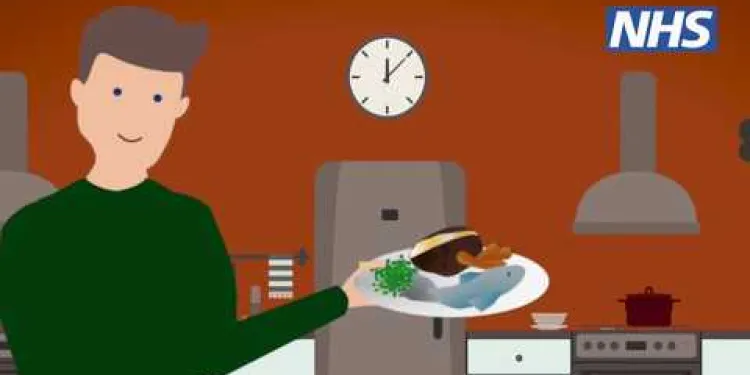
Tom's story (NHS Diabetes Prevention Programme)
Relevance: 43%
-
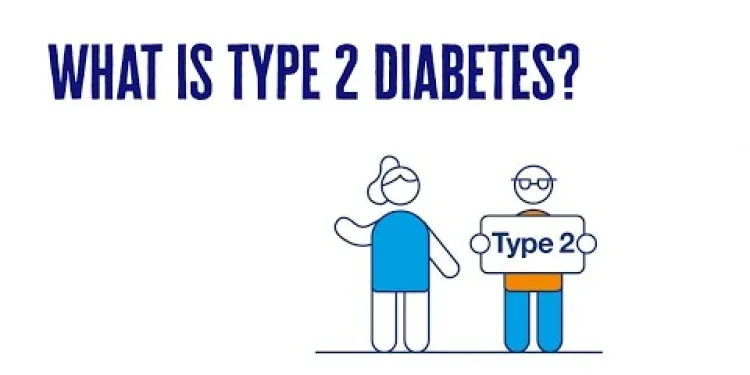
What Is Type 2 Diabetes? | 2 Minute Guide | Diabetes UK
Relevance: 42%
-

Can Type 2 Diabetes be prevented?
Relevance: 41%
-

How accurate are the tests for predicting type 1 diabetes?
Relevance: 41%
-

How is Type 2 Diabetes diagnosed?
Relevance: 41%
-
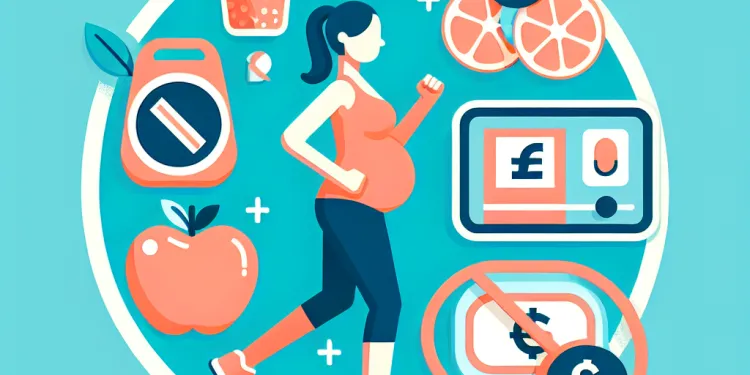
Can exercise help prevent gestational diabetes?
Relevance: 41%
-
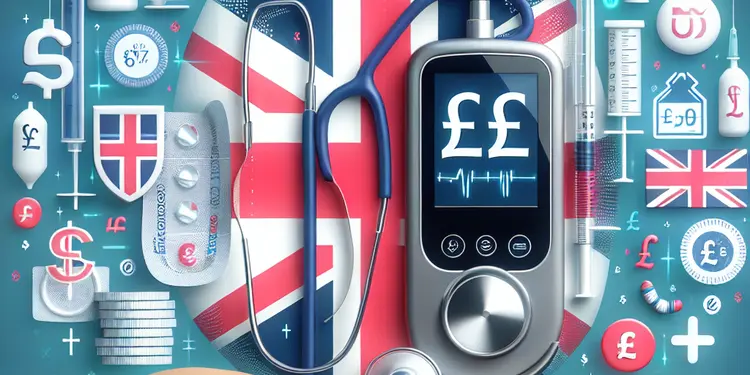
What are the limitations of type 1 diabetes screening?
Relevance: 40%
-

Is Type 2 Diabetes hereditary?
Relevance: 40%
-
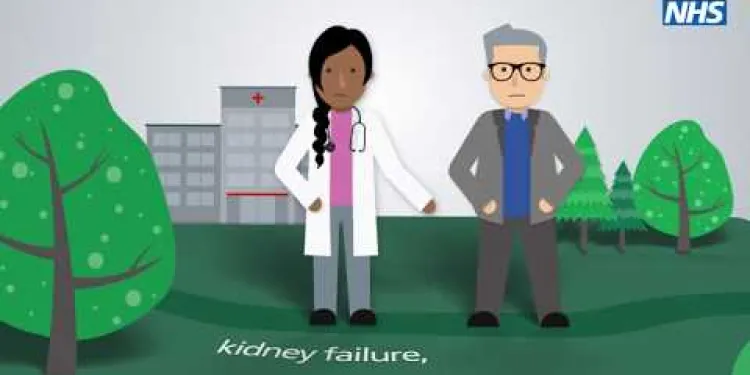
The NHS Diabetes Prevention Programme story
Relevance: 40%
-

What is the role of insulin in Type 2 Diabetes?
Relevance: 40%
-
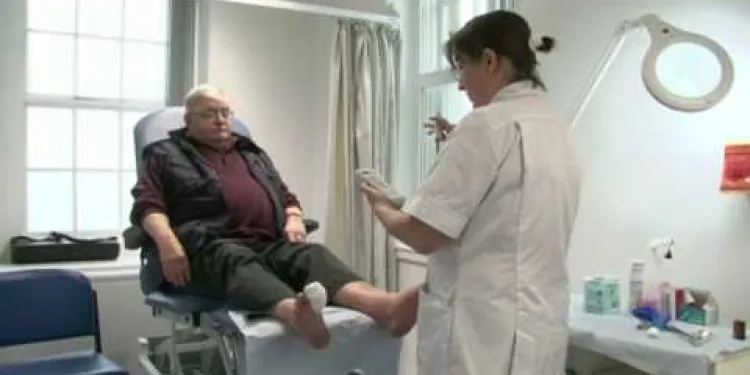
Diabetic Foot Conditions Podiatrist
Relevance: 39%
-

Can Type 2 Diabetes go away?
Relevance: 39%
-

How is Type 2 Diabetes treated?
Relevance: 39%
-

What are some common outcomes of property litigation?
Relevance: 39%
-
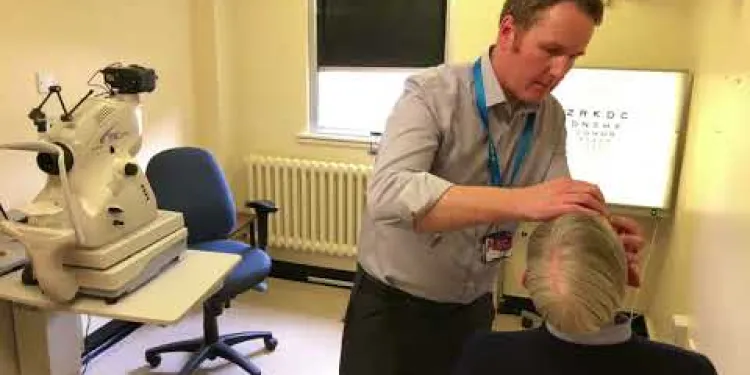
Derbyshire Diabetic Eye Screening - Diabetic Eye Screening
Relevance: 39%
-

Are heart attack symptoms different for people with diabetes?
Relevance: 39%
-

What is type 1 diabetes?
Relevance: 39%
-

Type 1 Diabetes supporting adults to manage Type 1 diabetes
Relevance: 39%
-
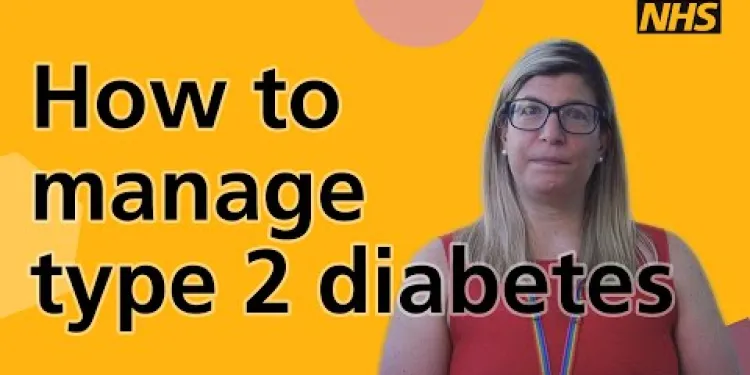
How to manage type 2 diabetes
Relevance: 39%
-
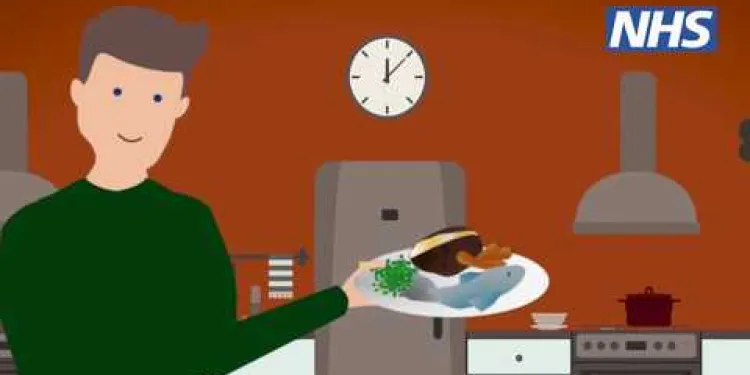
Tom's story (NHS Diabetes Prevention Programme)
Relevance: 39%
-

Can stress affect my Type 2 Diabetes?
Relevance: 39%
-
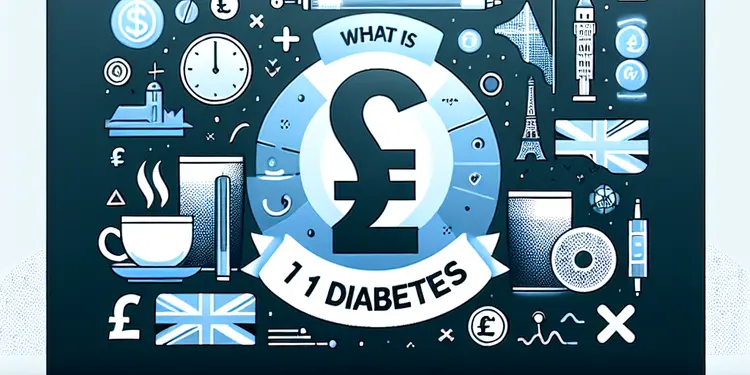
What is type 1 diabetes?
Relevance: 38%
-

Can Mounjaro be used in type 1 diabetes?
Relevance: 38%
-

What causes Type 2 Diabetes?
Relevance: 38%
-
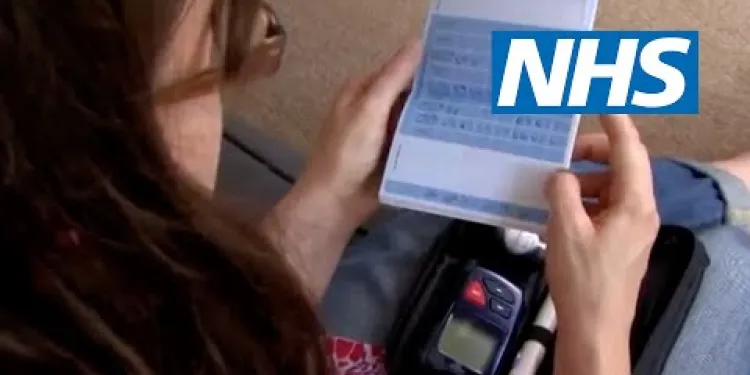
Gestational diabetes | NHS
Relevance: 38%
-

Diabetes Eye Screening
Relevance: 38%
-

Where can I find support for managing Type 2 Diabetes in the UK?
Relevance: 38%
-
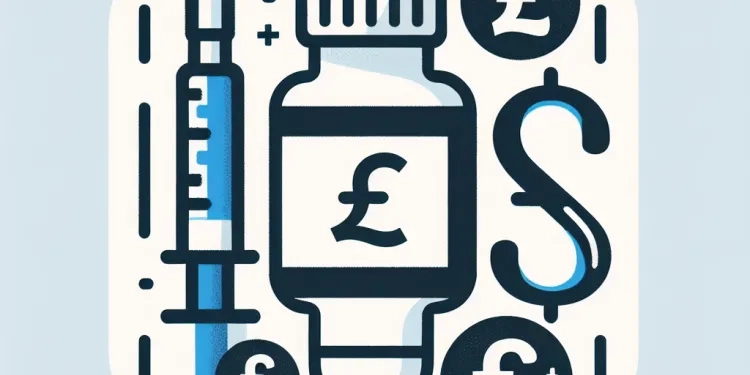
Is Teplizumab used to treat diabetes?
Relevance: 38%
-

Is Ozempic suitable for type 1 diabetes?
Relevance: 38%
-
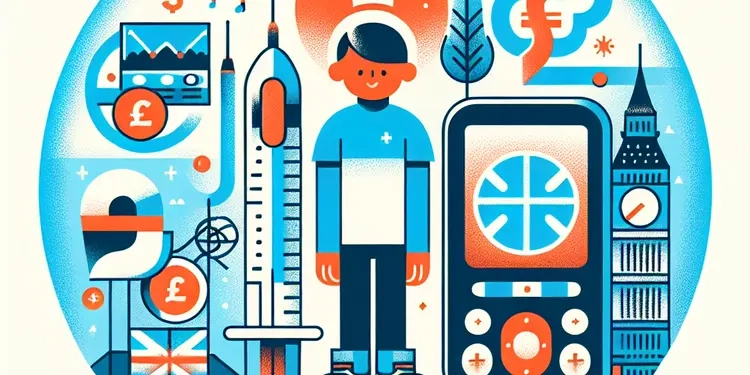
Should I screen my child for type 1 diabetes?
Relevance: 38%
-

Is there a genetic predisposition to type 1 diabetes?
Relevance: 38%
-
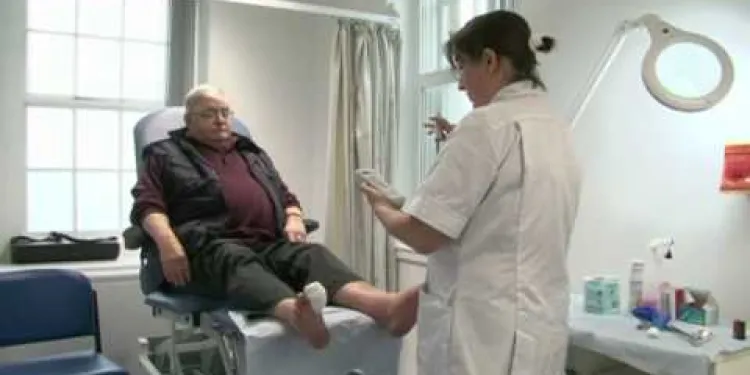
Diabetes Care - Preventing Amputations
Relevance: 37%
-

Can diabetes medications also help reduce heart attack risk?
Relevance: 37%
-

Hansa's story - The NHS Diabetes Prevention Programme
Relevance: 37%
-

Where can I have my child screened for type 1 diabetes?
Relevance: 37%
Improving Outcomes for People with Diabetes in Leeds
Introduction to Diabetes in Leeds
Diabetes is a significant health concern affecting people in Leeds and across the United Kingdom. Effective management and improving outcomes for individuals with diabetes require a comprehensive approach, integrating healthcare services, community support, and self-management education. The Leeds health community, including primary care practices, hospitals, and local health authorities, is actively engaged in initiatives to enhance the quality of life for those living with this chronic condition.
Access to Quality Healthcare Services
Access to quality healthcare services is crucial for managing diabetes effectively. Leeds offers a range of healthcare facilities such as the Leeds General Infirmary and St. James's University Hospital, which provide specialized diabetes care. Primary care networks in Leeds are also focusing on delivering personalized care plans, regular screenings, and advanced treatments. Enhancing the coordination between primary, secondary, and tertiary care providers ensures a seamless experience for patients.
Community Support and Education
Community support and education play vital roles in empowering individuals with diabetes to manage their condition effectively. Leeds has various support groups and educational programs that provide valuable resources, including dietary advice, medication management, and psychological support. Organizations like Diabetes UK work in collaboration with local health services to offer workshops and informational sessions. These initiatives help raise awareness and provide practical tips for daily diabetes management.
Promoting a Healthy Lifestyle
Leading a healthy lifestyle is fundamental for controlling diabetes. Leeds City Council, in partnership with health organizations, promotes physical activity and healthy eating through various community programs. Parks, leisure centers, and walking groups offer opportunities for regular exercise, which is essential for maintaining blood glucose levels. Additionally, local markets and health campaigns encourage the consumption of fresh, wholesome foods to support nutritional needs.
Leveraging Technology for Better Management
The integration of technology in diabetes care can significantly improve outcomes. Leeds is embracing digital health solutions such as telemedicine, mobile apps, and wearable devices to monitor blood sugar levels, track physical activity, and remind patients to take medications. These tools provide real-time data and facilitate prompt intervention, reducing the risk of complications.
Conclusion
Improving outcomes for people with diabetes in Leeds involves a multi-faceted approach that includes access to quality healthcare, community support and education, a focus on healthy lifestyles, and the use of technology. By continuing to invest in these areas, Leeds can enhance the quality of life for individuals with diabetes and reduce the overall burden of the disease. Collaboration among health authorities, community organizations, and individuals is essential for making meaningful progress in diabetes care.
Improving Outcomes for People with Diabetes in the United Kingdom
Understanding Diabetes Management
Diabetes management requires a comprehensive approach that includes dietary changes, regular physical activity, medication adherence, and regular monitoring of blood glucose levels. In the UK, the NHS provides guidelines to facilitate effective management, yet personal responsibility and education play vital roles. Utilizing technology, such as glucose monitoring devices and apps, can help individuals track their progress and adapt their lifestyle choices accordingly.
The Role of Diet and Nutrition
Diet is a cornerstone of diabetes management. The Eatwell Guide by Public Health England is a valuable resource, advising a balanced diet that's low in sugar and saturated fats, focusing on whole grains, fruits, vegetables, lean protein, and healthy fats. Diabetes UK also offers meal planning support and portion control tips to help maintain stable blood glucose levels and promote weight management.
Importance of Regular Physical Activity
Physical activity helps improve insulin sensitivity and lower blood sugar levels. The NHS recommends at least 150 minutes of moderate-intensity or 75 minutes of vigorous-intensity exercise weekly. Activities such as walking, cycling, and swimming are accessible options. For support, patients can join local exercise programs such as those offered by Leisure Services or diabetes peer groups.
Adherence to Medication
Adhering to prescribed medication regimes, including insulin, is crucial for effectively managing diabetes. Patients should regularly consult with their healthcare providers to ensure their medication plan is up to date. Pharmacists can also provide advice on managing side effects and scheduling medications to align with daily routines.
Monitoring and Regular Check-ups
Regular monitoring of blood glucose levels, typically using finger-prick tests or continuous glucose monitors (CGMs), can prevent complications. Annual diabetes reviews with healthcare teams are essential. These reviews check HbA1c levels, blood pressure, cholesterol, kidney function, and foot health to ensure a holistic approach to diabetes management.
Support Networks and Education
Support groups, both online and in-person, can provide community and encouragement, sharing experiences and tips, especially during challenging periods. Diabetes education programs in the UK, such as DESMOND or DAFNE, offer structured learning sessions to empower individuals to manage their condition effectively, fostering lifelong skills and confidence.
Helping People with Diabetes in Leeds
What is Diabetes in Leeds?
Diabetes is a health problem that many people in Leeds, and across the UK, deal with. Taking care of diabetes is important. It needs help from doctors, community support, and learning how to take care of yourself. In Leeds, doctors, hospitals, and health groups are working together to help people with diabetes live better lives.
Getting Good Healthcare
Good healthcare is important for managing diabetes. Leeds has places like the Leeds General Infirmary and St. James’s Hospital that help people with diabetes. Nurses and doctors in Leeds create special care plans for each person. They also do regular health checks. When different health services work together, it makes things easier for patients.
Community Support and Learning
Community support and learning help people manage diabetes. In Leeds, there are support groups and classes that give advice about food, medicine, and feeling better emotionally. Groups like Diabetes UK also run workshops to teach people about diabetes. These programs help people learn how to manage diabetes every day.
Living a Healthy Life
Living healthy helps control diabetes. Leeds City Council works with health groups to encourage exercise and healthy eating. There are parks, leisure centers, and walking groups where people can exercise. Exercise helps keep blood sugar levels steady. Local markets and health campaigns also encourage eating fresh and healthy foods.
Using Technology for Diabetes Care
Technology can help people take care of their diabetes better. In Leeds, digital tools like telemedicine, apps, and devices can check blood sugar levels, track exercise, and remind people to take medicine. These tools give instant information and help make quick decisions to avoid problems.
Final Thoughts
Helping people with diabetes in Leeds means doing many things: providing good healthcare, community support, teaching how to live a healthy life, and using technology. By focusing on these areas, Leeds can help people with diabetes live better and reduce the challenges of the disease. Working together with health services, community groups, and individuals is important to make progress in diabetes care.
Helping People with Diabetes in the United Kingdom
What is Diabetes Care?
Taking care of diabetes means doing many things. You need to eat healthy foods, exercise, take your medicine, and check your blood sugar regularly. In the UK, the NHS has rules to help. It’s important to learn and take care of yourself. Technology like special devices and apps can help you keep track and make good choices.
Why Diet and Food Matter
Eating right is very important for diabetes. The Eatwell Guide from Public Health England shows how to have a balanced diet. This means eating less sugar and bad fats, and more whole grains, fruits, vegetables, lean meats, and good fats. Diabetes UK can help with meal plans and how much to eat. This keeps your blood sugar steady and helps with your weight.
Why Exercise is Important
Exercise helps your body use insulin better and lowers blood sugar. The NHS says to do exercise like walking, cycling, or swimming for at least 150 minutes a week. You can join exercise groups with others who have diabetes. It feels good and can be a fun way to stay healthy.
Taking Your Medicine
You need to take your medicine to keep diabetes under control. Talk to your doctor to make sure your medicine is right for you. Pharmacists can help you understand your medicine and how to fit it into your day.
Checking Your Health Regularly
Check your blood sugar often. You can use a finger-prick test or a special monitor (CGM). It helps you find problems early. Go to your diabetes check-up every year. The doctor will check your HbA1c, blood pressure, cholesterol, kidneys, and feet to keep you healthy.
Getting Support and Learning More
Join support groups to meet people with diabetes. They can share tips and help you feel better. You can also join UK programs like DESMOND or DAFNE. They teach you how to manage diabetes well and give you skills to stay confident and healthy.
Frequently Asked Questions
What are the main types of diabetes and how do they differ?
There are three main types of diabetes: Type 1, Type 2, and gestational diabetes. Type 1 diabetes is an autoimmune condition where the body attacks insulin-producing cells in the pancreas, requiring individuals to take insulin. Type 2 diabetes is more common and occurs when the body becomes resistant to insulin or doesn't produce enough insulin, often managed with lifestyle changes, medications, and sometimes insulin. Gestational diabetes occurs during pregnancy and usually disappears after giving birth, but it increases the risk of developing Type 2 diabetes later.
What are the common symptoms of diabetes?
Common symptoms of diabetes include increased thirst, frequent urination, extreme fatigue, blurred vision, unintentional weight loss, slow healing of cuts and wounds, and in some cases, tingling or numbness in the hands and feet. If you experience these symptoms, it's important to consult a healthcare professional for assessment.
How is diabetes diagnosed?
Diabetes is diagnosed through blood tests that measure blood glucose levels. The most common tests include the fasting blood sugar test, HbA1c test (which provides an average of blood glucose levels over the past 2 to 3 months), and the oral glucose tolerance test. A healthcare professional will determine the appropriate test based on individual circumstances.
What lifestyle changes can help manage diabetes effectively?
Managing diabetes effectively involves making healthy lifestyle changes. This includes eating a balanced diet rich in fruits, vegetables, lean proteins, and whole grains, engaging in regular physical activity, maintaining a healthy weight, and monitoring blood glucose levels regularly. Smoking cessation and moderating alcohol intake can also improve outcomes.
How can technology assist in managing diabetes?
Technology plays a significant role in managing diabetes. Tools such as continuous glucose monitors (CGMs), insulin pumps, and diabetes management apps work together to provide real-time data, making it easier to track and manage blood glucose levels. These technologies support individuals and healthcare providers in making informed decisions about treatment.
What is the significance of HbA1c levels, and how often should they be checked?
HbA1c levels measure the average blood glucose levels over the past two to three months, providing a critical indicator of long-term glucose control. The target HbA1c level for most individuals with diabetes is around 48 mmol/mol (6.5%) or lower, but this can vary based on individual health goals. People with diabetes are usually advised to get their HbA1c checked at least twice a year.
Can diabetes be prevented?
While Type 1 diabetes cannot be prevented, Type 2 diabetes and gestational diabetes can often be delayed or prevented through healthy lifestyle choices. Maintaining a healthy weight, eating a nutritious diet, and staying physically active can significantly reduce the risk of developing Type 2 diabetes.
What are the complications associated with unmanaged diabetes?
Unmanaged diabetes can lead to serious complications, including cardiovascular disease, kidney damage (nephropathy), nerve damage (neuropathy), eye damage (retinopathy), and complications in pregnancy. It can also increase the risk of foot problems and skin conditions. Regular monitoring and adherence to management plans are crucial to minimize these risks.
How does diet affect diabetes management?
Diet plays a critical role in diabetes management. Consuming a balanced diet with appropriate carbohydrate intake helps manage blood glucose levels. Individuals are advised to choose whole grains, lean proteins, and plenty of fruits and vegetables, while limiting sugars, saturated fats, and processed foods. Working with a dietician can provide personalized dietary advice.
Why is regular exercise beneficial for people with diabetes?
Regular exercise helps to lower blood sugar levels, improve insulin sensitivity, and maintain a healthy weight, all of which are beneficial for managing diabetes. Physical activity also reduces the risk of cardiovascular disease, boosts mood, and improves overall health. Individuals should aim for at least 150 minutes of moderate-intensity exercise per week.
How important is blood glucose monitoring in diabetes management?
Routine blood glucose monitoring is essential in diabetes management as it helps individuals understand how various factors such as diet, medication, and physical activity affect their blood sugar levels. This information is crucial for making necessary adjustments to their diabetes care plan and preventing complications.
Are there community resources available for people with diabetes in the UK?
Yes, various community resources are available in the UK to support people with diabetes. Organizations like Diabetes UK provide information, support groups, educational events, and advocacy. Local NHS services and diabetes education programs also offer resources and support for managing the condition.
How can stress impact diabetes management?
Stress can adversely impact diabetes management by causing fluctuations in blood sugar levels and reducing the effectiveness of insulin. It may also lead to unhealthy lifestyle habits. Learning stress management techniques such as mindfulness, meditation, and relaxation exercises can help improve overall wellbeing and diabetes control.
What is the role of medication in managing diabetes?
Medication plays a crucial role in managing diabetes, especially in cases where lifestyle modifications alone are insufficient. Various medications help control blood sugar levels, including insulin and oral medications like metformin. The choice of medication depends on individual needs and medical history, and it must be taken as prescribed by a healthcare provider.
What support is available for children diagnosed with diabetes?
Children with diabetes can access specialized care through paediatric diabetes teams in the NHS. These teams include doctors, nurses, dieticians, and psychologists who provide comprehensive care and support to manage the condition. Schools may also offer additional support to ensure children with diabetes have the resources they need to thrive both academically and socially.
What are the different types of diabetes?
There are three main types of diabetes. They are:
- Type 1 Diabetes: The body does not make insulin. People need to take insulin every day.
- Type 2 Diabetes: The body does not use insulin well. People may need medicine or insulin.
- Gestational Diabetes: This happens during pregnancy and usually goes away after the baby is born.
The differences are:
- Type 1: It usually starts in children or young adults.
- Type 2: It often starts in adults, but more kids are getting it now.
- Gestational: It is only during pregnancy.
Some helpful tools can include picture guides or using apps to manage diabetes.
There are three big kinds of diabetes: Type 1, Type 2, and gestational diabetes.
Type 1 diabetes is when the body breaks the cells that make insulin. It means people need to take insulin because their body can’t make it.
Type 2 diabetes happens more often. This is when the body doesn’t use insulin well or doesn’t make enough insulin. People can help this by eating healthy food, exercising, taking medicine, and sometimes insulin.
Gestational diabetes happens when someone is pregnant. It usually goes away after the baby is born. But it can make it easier to get Type 2 diabetes later.
If reading is hard, you can use tools that read the text out loud or change the text to simpler words. Asking someone to help read or explain can also be useful.
What are the common signs of diabetes?
Diabetes is a condition when your body has trouble controlling sugar in your blood.
Here are some common signs:
- Feeling very thirsty.
- Feeling very tired.
- Going to the toilet a lot.
- Losing weight without trying.
If you or someone you know has these signs, it is important to see a doctor.
Helpful Tip: Use a picture chart or talk with a doctor to understand better.
If you have diabetes, you might feel very thirsty, need to pee a lot, feel very tired, and find it hard to see clearly. You might lose weight without trying, and cuts or wounds may take a long time to heal. Sometimes, people feel a tingling or numb feeling in their hands and feet. If you feel like this, it’s important to talk to a doctor.
How do doctors know if someone has diabetes?
Doctors can tell if someone has diabetes by doing some simple tests:
- Blood Test: A doctor will take a little bit of blood from your arm or finger to see how much sugar is in it.
- Urine Test: Sometimes, doctors will check your pee to look for sugar.
If a person has too much sugar in their blood or pee, it might mean they have diabetes.
If you are worried, talk to your doctor. They can help you understand and take care of your health.
Helpful Tip: Ask a friend, family member, or support worker to go with you to the doctor. They can help you remember what the doctor says.
Doctors check for diabetes by doing blood tests. These tests look at how much sugar is in your blood. The most common tests are:
- The fasting blood sugar test. You can’t eat before this test.
- The HbA1c test. This test shows your average blood sugar over 2 to 3 months.
- The oral glucose tolerance test. You drink something sweet, and then they test your blood.
The doctor will pick the best test for you. It depends on what you need.
If reading is hard, use tools like audiobooks or apps that read text out loud. Ask someone you trust to explain things to you if you need help.
How can changing your lifestyle help with diabetes?
Taking care of diabetes means making healthy choices every day. Eat lots of fruits and vegetables. Also eat lean meats and whole grains. Move your body often, like playing or exercising. Keep a healthy weight and check your blood sugar often. It's also good to stop smoking and not drink too much alcohol. These things can help you stay healthy.
How can technology help you take care of diabetes?
Technology can make it easier to manage diabetes. Here are some ways it can help:
- Blood sugar monitors: These tools check how much sugar is in your blood. They can tell you if your sugar is too high or too low.
- Insulin pumps: These devices give your body insulin when you need it, so you don't have to use a needle every time.
- Apps on phones: There are apps that help you track your food, exercise, and medicine. They also remind you to take care of your diabetes.
- Online support groups: You can join groups on the internet to talk to other people with diabetes. They can give you advice and support.
Using these tools can make it easier to stay healthy.
Technology helps people with diabetes. There are special tools like continuous glucose monitors (CGMs), insulin pumps, and apps for phones. These tools work together to give updates on blood sugar levels. This makes it easier to watch and manage these levels. These tools help people and doctors make good choices about treatment.
What is HbA1c and why is it important? How often should you check it?
What is HbA1c?
HbA1c is a blood test. It shows your average blood sugar level over the last 3 months.
Why is it important?
This test helps doctors see if your blood sugar is under control. Keeping blood sugar at the right level is important for your health.
How often should you check it?
Doctors usually say to check HbA1c every 3 to 6 months. Ask your doctor what is best for you.
Helpful Tips
Here are some tips to help you:
- Use a calendar to remember when to get your test.
- Talk to your doctor or nurse if you have questions.
- Find a family member or friend to go with you to the doctor.
If you need more help understanding, ask someone you trust to explain it to you.
HbA1c levels help doctors see how much sugar has been in the blood over the last 2 to 3 months. It shows how well the body is controlling sugar over a long time. People with diabetes usually try to keep their HbA1c level close to 48 mmol/mol (6.5%) or lower. But the right level can be different for each person. People with diabetes are usually told to have their HbA1c checked at least two times a year.
Can we stop diabetes from happening?
Some types of diabetes can be stopped or delayed. Here are some ways:
- Eat healthy foods like fruits and vegetables.
- Try to play and be active every day.
- Keep a healthy weight.
- Visit the doctor regularly.
If you need help, ask a family member or a friend.
You can use pictures or apps to remind you to eat well and exercise.
You cannot stop Type 1 diabetes from happening. But you can often stop or slow down Type 2 diabetes and diabetes during pregnancy by making healthy choices. Keep a healthy weight, eat good food, and move your body. This can help you not get Type 2 diabetes.
Here are some tips to help:
- Eat lots of fruits and vegetables.
- Try to play or exercise every day.
- Drink water instead of sugary drinks.
- Get enough sleep each night.
Try using reminders to help you remember these healthy habits and ask a friend or family member to support you.
What problems can happen if diabetes is not taken care of?
If diabetes is not looked after, it can cause health problems. Here are some things that might happen:
- Problems with the heart and blood vessels
- Troubles with your eyes
- Pain or numbness in your feet
- Kidney problems
Here are some ways to help:
- Check your blood sugar regularly
- Eat healthy foods
- Exercise often
- Take your medicine if the doctor says you need it
Ask your doctor or nurse for advice. They can help you take care of your diabetes. Using pictures and simple charts can also help understand better.
If diabetes is not looked after, it can cause big health problems. These include heart disease, kidney damage, nerve damage, and eye problems. It can also cause issues during pregnancy and make your feet and skin have problems. It is very important to check your health often and follow your doctor's advice to stay safe.
How does food help manage diabetes?
Eating the right food can help people with diabetes. Foods like fruits, vegetables, and whole grains are good choices. These foods can help keep your blood sugar levels steady.
Try to eat small meals throughout the day, instead of big ones. This can help your body manage sugar better.
It is also important to drink water and stay active. Exercise can help, like walking or playing outside. These things can make diabetes easier to manage.
Helpful tools can include a food diary to track what you eat. A meal plan can also help you choose the best foods.
Eating the right food is very important if you have diabetes. Eating healthy food helps keep your blood sugar at the right level. Try to eat whole grains, lean meats, lots of fruits and vegetables, and not too much sugar, fat, or junk food. Talking to a food expert, called a dietician, can help you know what to eat just for you.
Why is exercise good for people with diabetes?
Exercise helps people with diabetes feel better. It can lower blood sugar and help with weight. Exercising gives you energy and can make your heart stronger. Walking, swimming, or playing outside are good exercises.
If you need help understanding, you can:
- Ask someone to explain the words.
- Use pictures to help understand.
- Use apps that read text out loud.
Exercise is good for you! It helps keep your blood sugar low and makes your body use insulin better. This is important for people with diabetes. Exercise also helps you stay at a healthy weight.
Doing physical activities like walking, dancing, or playing sports is fun and makes your heart healthy. It can make you feel happier too!
You should try to exercise for 150 minutes every week. That's like 30 minutes a day, five days a week. Start slow and take breaks if you need to. You can use tools like a calendar to track your exercise, or apps that remind you to move. Ask a friend to join you or listen to music to make it more fun!
Why is it important to check blood sugar when you have diabetes?
Checking blood sugar levels is very important for people with diabetes. It helps them see how food, medicine, and exercise change their blood sugar. This helps them make good choices to stay healthy and avoid problems.
Can people with diabetes in the UK get help from community places?
Yes, there are different places in the UK that help people with diabetes. Diabetes UK is a group that gives information, has support groups, and teaches people about diabetes. They also speak up for people with diabetes. The NHS and local diabetes education programs also help people learn how to take care of their diabetes.
How can stress affect taking care of diabetes?
Feeling worried or scared a lot is called stress. Stress can make it harder to take care of diabetes. When you feel stressed, your body may act differently. This can change your blood sugar levels.
Stressful feelings can make you forget or not want to check your blood sugar. You might also forget to take your medicine or eat healthy foods. This can make it harder to keep diabetes under control.
Here are some things that can help:
- Take deep breaths to calm down.
- Talk to someone you trust about your feelings.
- Use a notebook to write down your feelings and your blood sugar levels.
- Ask an adult for help if you are feeling too worried.
Stress can make it hard to manage diabetes. It can change blood sugar levels and make insulin work less well. Stress might also lead to bad habits. Learning ways to manage stress, like being mindful, meditating, and doing relaxing exercises, can help you feel better and keep your diabetes under control.
How does medicine help with diabetes?
Medicine is very important for people with diabetes. It helps when eating better and exercise are not enough. There are different medicines to help control blood sugar. Some are pills like metformin, and some are injections like insulin. The doctor will choose the right medicine for you. It is important to take it just the way the doctor says.
Help for Children with Diabetes
What help can children with diabetes get?
Here is some support for children with diabetes:
- Doctors and Nurses: They can help you manage diabetes.
- Medicines: You might need insulin to help your body.
- Healthy Eating: Learn about foods that are good for you.
- Exercise: Playing and moving are important for you.
- Support Groups: Meet other kids with diabetes and share stories.
- Teachers: They can help you at school if you need it.
Remember, you are not alone! There are many people and tools to help you stay healthy and happy.
Kids with diabetes can get special help from a team of experts in the NHS. This team has doctors, nurses, dietitians, and people who help with feelings. They all work together to take care of kids and help them stay healthy. Schools can also help by making sure kids with diabetes have what they need to do well in school and make friends.
Useful Links
This website offers general information and is not a substitute for professional advice.
Always seek guidance from qualified professionals.
If you have any medical concerns or need urgent help, contact a healthcare professional or emergency services immediately.
Some of this content was generated with AI assistance. We’ve done our best to keep it accurate, helpful, and human-friendly.
- Ergsy carfully checks the information in the videos we provide here.
- Videos shown by Youtube after a video has completed, have NOT been reviewed by ERGSY.
- To view, click the arrow in centre of video.
- Most of the videos you find here will have subtitles and/or closed captions available.
- You may need to turn these on, and choose your preferred language.
- Go to the video you'd like to watch.
- If closed captions (CC) are available, settings will be visible on the bottom right of the video player.
- To turn on Captions, click settings .
- To turn off Captions, click settings again.
More Items From Ergsy search
-

Improving outcomes for people with diabetes
Relevance: 100%
-

NHS Diabetes Prevention Programme; Preventing Type 2 and improving outcomes for people with diabetes
Relevance: 79%
-

How do virtual wards improve patient outcomes?
Relevance: 59%
-

How can AI improve patient outcomes in lung cancer?
Relevance: 57%
-

What are the benefits of early detection of type 1 diabetes?
Relevance: 48%
-

Tom's story (NHS Diabetes Prevention Programme)
Relevance: 43%
-

What Is Type 2 Diabetes? | 2 Minute Guide | Diabetes UK
Relevance: 42%
-

Can Type 2 Diabetes be prevented?
Relevance: 41%
-

How accurate are the tests for predicting type 1 diabetes?
Relevance: 41%
-

How is Type 2 Diabetes diagnosed?
Relevance: 41%
-

Can exercise help prevent gestational diabetes?
Relevance: 41%
-

What are the limitations of type 1 diabetes screening?
Relevance: 40%
-

Is Type 2 Diabetes hereditary?
Relevance: 40%
-

The NHS Diabetes Prevention Programme story
Relevance: 40%
-

What is the role of insulin in Type 2 Diabetes?
Relevance: 40%
-

Diabetic Foot Conditions Podiatrist
Relevance: 39%
-

Can Type 2 Diabetes go away?
Relevance: 39%
-

How is Type 2 Diabetes treated?
Relevance: 39%
-

What are some common outcomes of property litigation?
Relevance: 39%
-

Derbyshire Diabetic Eye Screening - Diabetic Eye Screening
Relevance: 39%
-

Are heart attack symptoms different for people with diabetes?
Relevance: 39%
-

What is type 1 diabetes?
Relevance: 39%
-

Type 1 Diabetes supporting adults to manage Type 1 diabetes
Relevance: 39%
-

How to manage type 2 diabetes
Relevance: 39%
-

Tom's story (NHS Diabetes Prevention Programme)
Relevance: 39%
-

Can stress affect my Type 2 Diabetes?
Relevance: 39%
-

What is type 1 diabetes?
Relevance: 38%
-

Can Mounjaro be used in type 1 diabetes?
Relevance: 38%
-

What causes Type 2 Diabetes?
Relevance: 38%
-

Gestational diabetes | NHS
Relevance: 38%
-

Diabetes Eye Screening
Relevance: 38%
-

Where can I find support for managing Type 2 Diabetes in the UK?
Relevance: 38%
-

Is Teplizumab used to treat diabetes?
Relevance: 38%
-

Is Ozempic suitable for type 1 diabetes?
Relevance: 38%
-

Should I screen my child for type 1 diabetes?
Relevance: 38%
-

Is there a genetic predisposition to type 1 diabetes?
Relevance: 38%
-

Diabetes Care - Preventing Amputations
Relevance: 37%
-

Can diabetes medications also help reduce heart attack risk?
Relevance: 37%
-

Hansa's story - The NHS Diabetes Prevention Programme
Relevance: 37%
-

Where can I have my child screened for type 1 diabetes?
Relevance: 37%


